I am asking for help in last resort, I have a problem with my code that is driving me crazy. I work with both Python 2.7.6 and Python 3.4.3 on Ubuntu 14.04 with the following very simple part of code that I took from there password generator urandom
import os
def random_password(length=20, symbols='abcdefghijklmnopqrstuvwxyzABCDEFGHIJKLMNOPQRSTUVWXYZ0123456789@$^_+&'):
password = []
for i in map(lambda x: int(len(symbols)*x/255.0), os.urandom(length)):
password.append(symbols[i])
return ''.join(password)
random_password()
password = random_password()
print(password)
This part of code works with python 3.4.3. but randomly give the following error every 2 or 3 run:
Traceback (most recent call last):
File "/home/jsmith/Documents/PythonProjects/MainFile", line 12, in <module>
IotaSeed = Gen_Seed()
File "/home/jsmith/Documents/PythonProjects/MainFile", line 7, in Gen_Seed
IotaSeed.append(symbols[i])
IndexError: string index out of range
And with Python 2.7.6, it doesn't work at all and give the following error :
Traceback (most recent call last):
File "PWDGEN.py", line 10, in <module>
random_password()
File "PWDGEN.py", line 6, in random_password
for i in map(lambda x: int(len(symbols)*x/255.0), os.urandom(length)):
File "PWDGEN.py", line 6, in <lambda>
for i in map(lambda x: int(len(symbols)*x/255.0), os.urandom(length)):
TypeError: unsupported operand type(s) for /: 'str' and 'float'
I understand how lambda and map works but I just can't find a solution and I can't switch to python 3.4.3 because I coded my main program with 2.7.
What can I do to make it works under python 2.7 and avoid the "string index out of range" error seen in 3.4.3?
Thanks, PGriffin.

